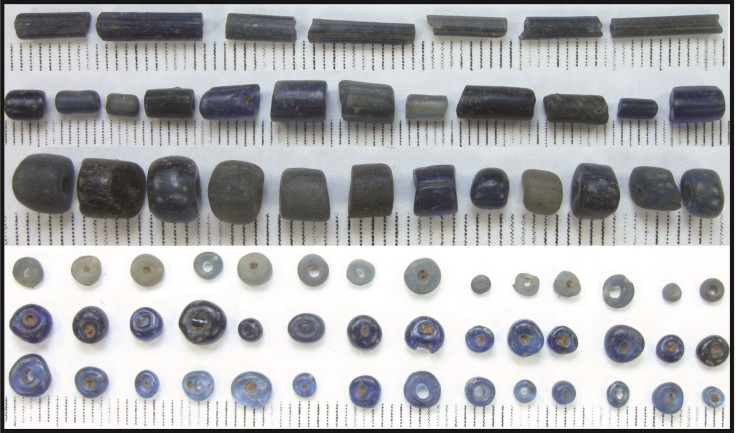Africans Made Their Own Glass, Didn’t Need Europeans, Archaeologists Say

Sub-Saharan Africans were making glass way before Europeans showed up.
Experts previously thought that the remnants of glassworking operations found more than 100 years ago at a site in southwestern Nigeria were evidence of glass being imported and then reworked, but recent research has shown that the thousands of glass beads and other pieces dated to between the 11th and 15th centuries and were made in the area.
Europeans started exploring sub-Saharan Africa only toward the end of that timeline.
A study in the Journal of Archaeological Science says the findings are the “first solid evidence for primary glass production” in that region.
The discovery that the glass was the work of the Africans and not imported from Europe came from an analysis of the material. The researchers suggest the glass had a local source based on its chemical composition and coloring.
Glass artifacts studied were recovered from areas near Ile-Ife, “a town that traditions identify as the birthplace of the Yoruba people and their deities,” the study explains. “Ile-Ife has long been associated with glass processing and glass beads. … Glass beads are highly valued and symbolically charged in Yoruba culture today.”
Previous research suggested that the Ile-Ife glass was different on a chemical level from other known old glass sources, but the new study took that concept a step further. According to Rice University, the archaeologists analyzed glass beads from the area and found “that none matched the chemical composition of any other known glass-production area in the Old World, including Egypt, the eastern Mediterranean, the Middle East and Asia.” Instead, the high level of lime and alumina in the glass “reflects local geology and raw materials.”
Glass with that composition has also been found in other places in West Africa, which means people may have been trading the glass a lot.
“This area has been recognized as a glassworking workshop for more than a century,” lead study author Abidemi Babatunde Babalola said in the Rice statement. “The glass-encrusted containers and beads that have been uncovered there were viewed for many years as evidence that imported glass was remelted and reworked.”
But with the new information about the glass having a local source, the university said Babalola “hopes his work will help researchers understand its impact on the social, political and economic fabrics of the African societies.”
© Copyright IBTimes 2024. All rights reserved.





















